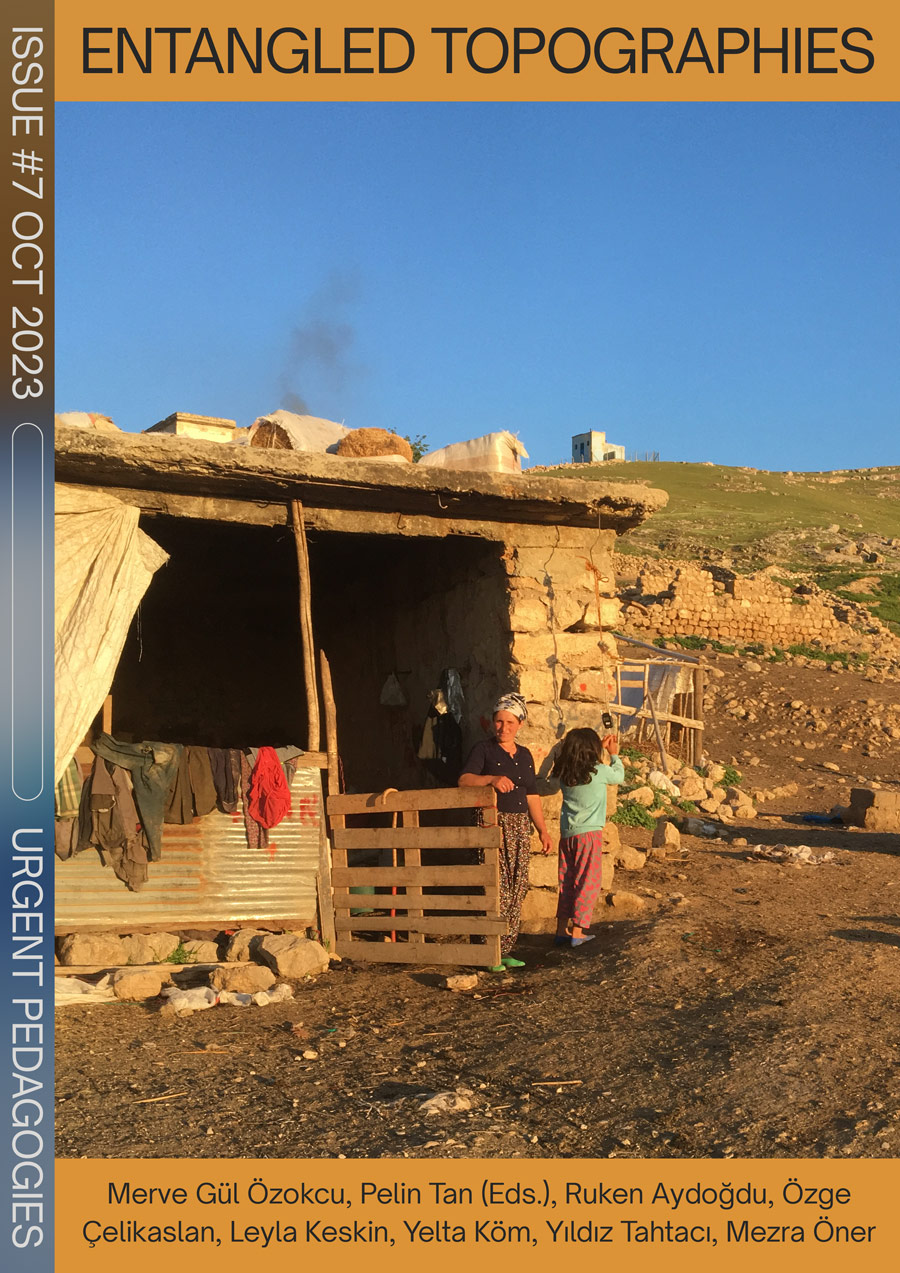Narratives of Spaces: The gaze of the signifier, participation in an ongoing research
Merve Gül Özokcu
CATEGORY
“From your own grandmother to an architect friend, how to remember and how to document the memories?”
Can research be seen as a decolonial action? How hard can a researcher get to relate things differently from the old paradigm? How do the other actors of geography be documented as equals? Are actors just human beings? Can women be considered as the only ones who are unrepresented? How do we live together?
How does my household really stay alive? Why is the cellar of my home that important? Why is there a supply chain from my village to my city, to my migrant aunt’s home? Do we really need to carry even dairy product to other geographies? What makes grandma’s dishes that tasty? [1]
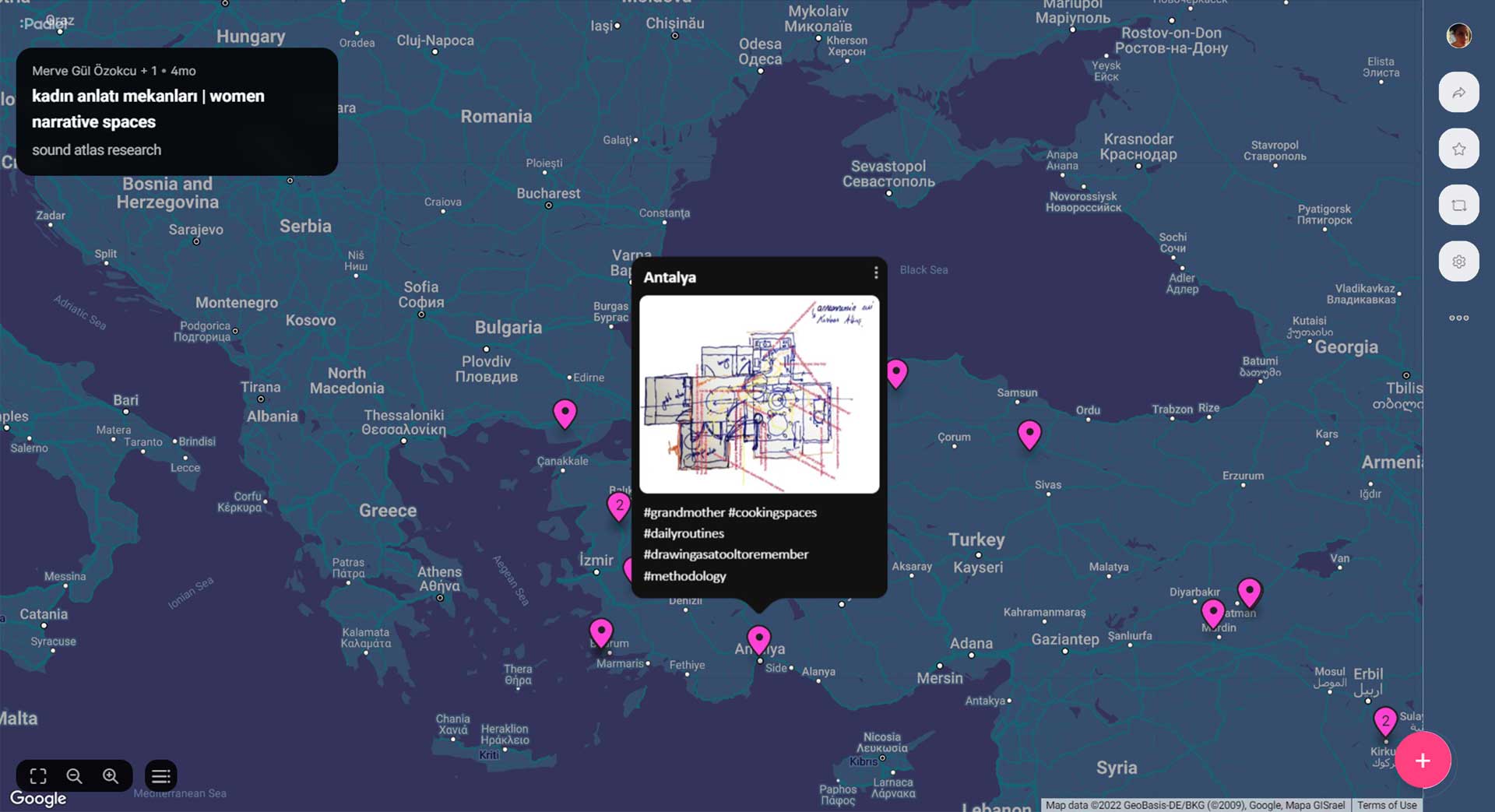
From your own grandmother to an architect friend, how to remember and how to document the memories? https://padlet.com/mozokcu/kadinanlatimekanlari
Do smell and muscle memory help to remember stories? If we mimic our grandmother’s table, will we remember the things that they were telling us? What about their grandma’s stories? How far can we go back in time?
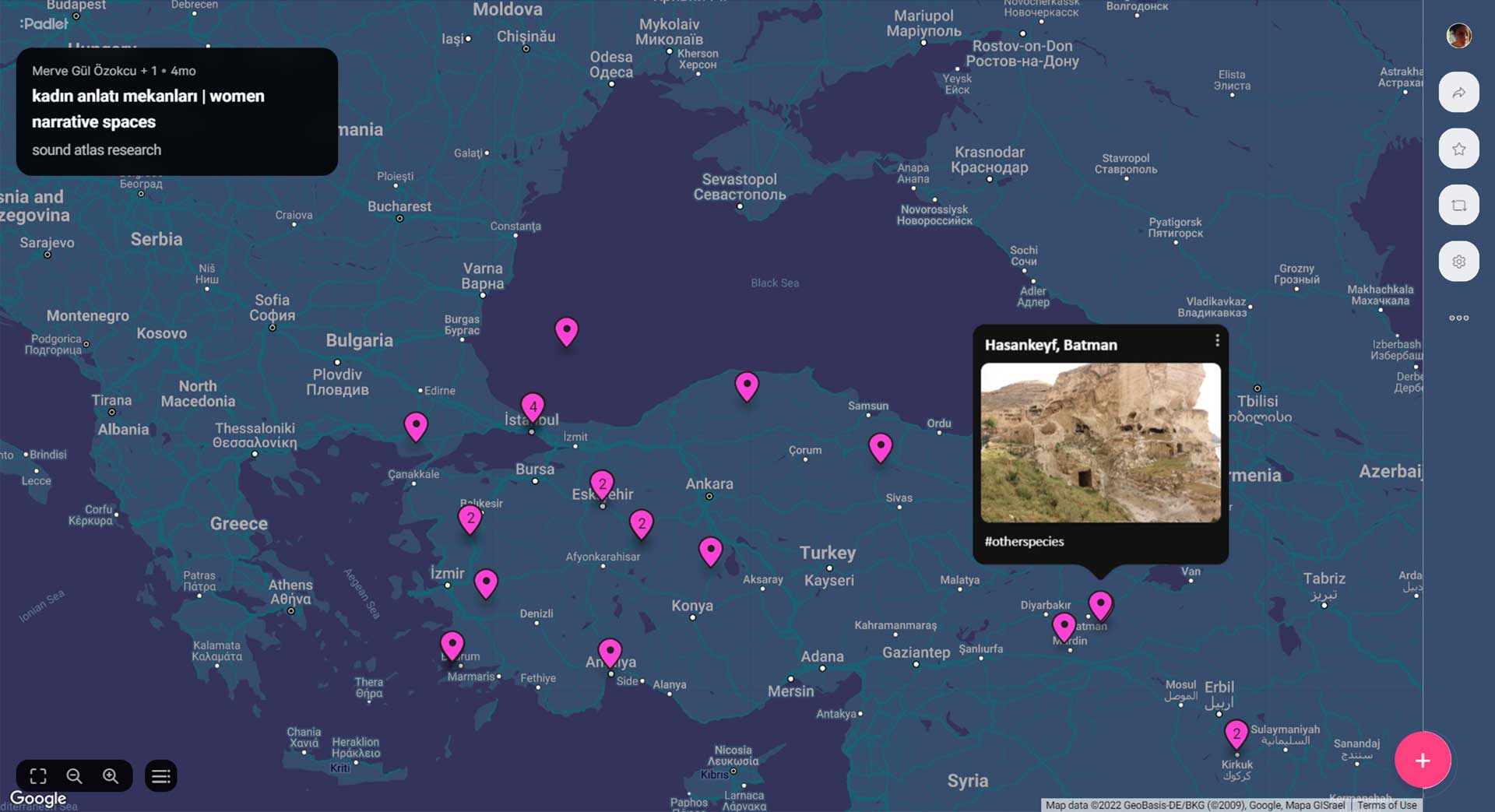
How to archive individual memories/care in a collective work? https://herkesicinmimarlik.org/en/ https://padlet.com/mozokcu/kadinanlatimekanlari
Can an architectural drawing help us to remember? Can we be flaneurs in a drawing? Who can read and who can draw? How can we relate spaces with memory? What do we remember? How do we remember? How can we document memories?
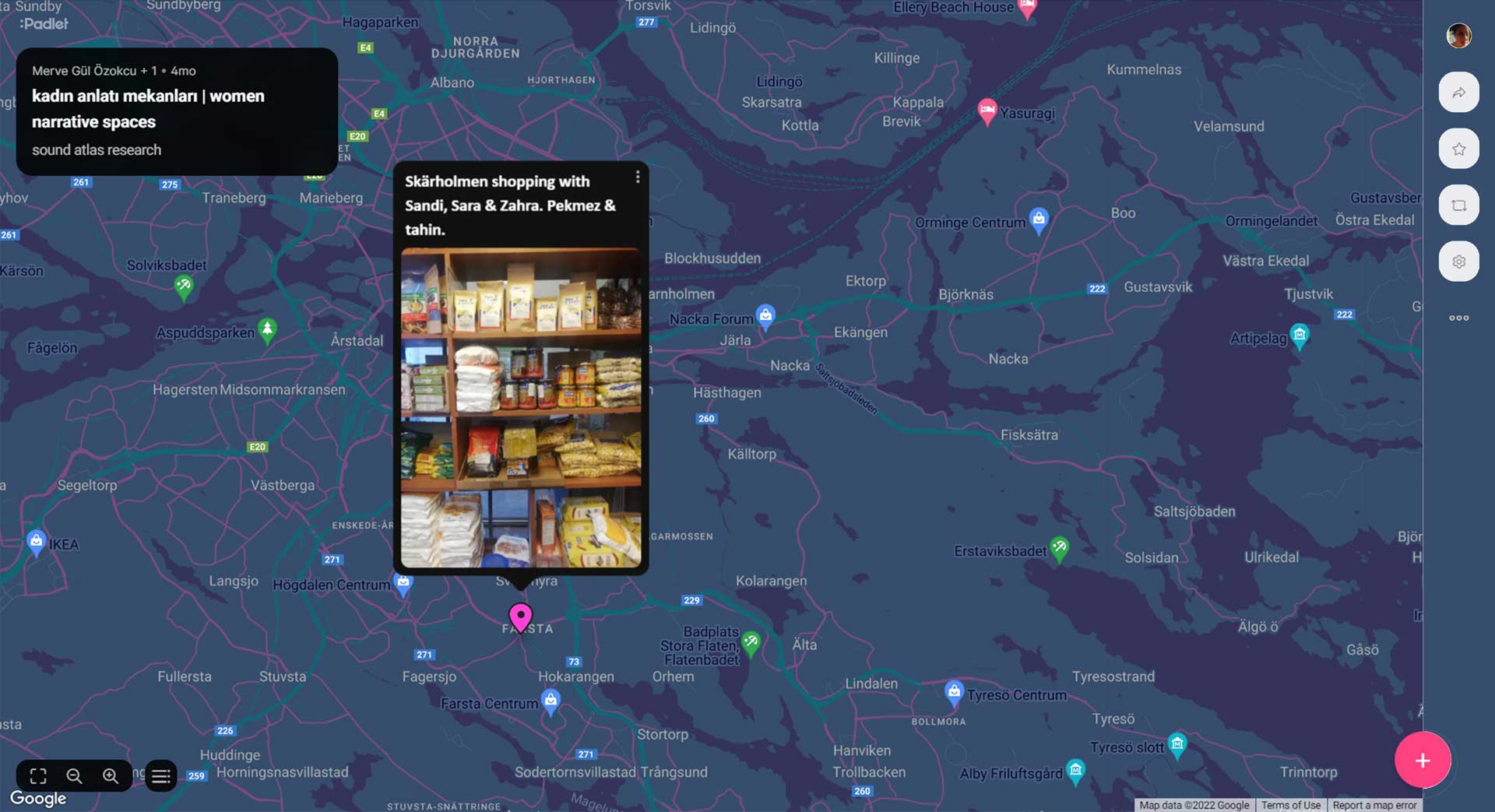
Is collective research possible in a new met environment? How to find/reach people? How to adapt to a big group? Is it possible to use architecture as a tool in oral history methodology with non-architects? https://padlet.com/mozokcu/kadinanlatimekanlari
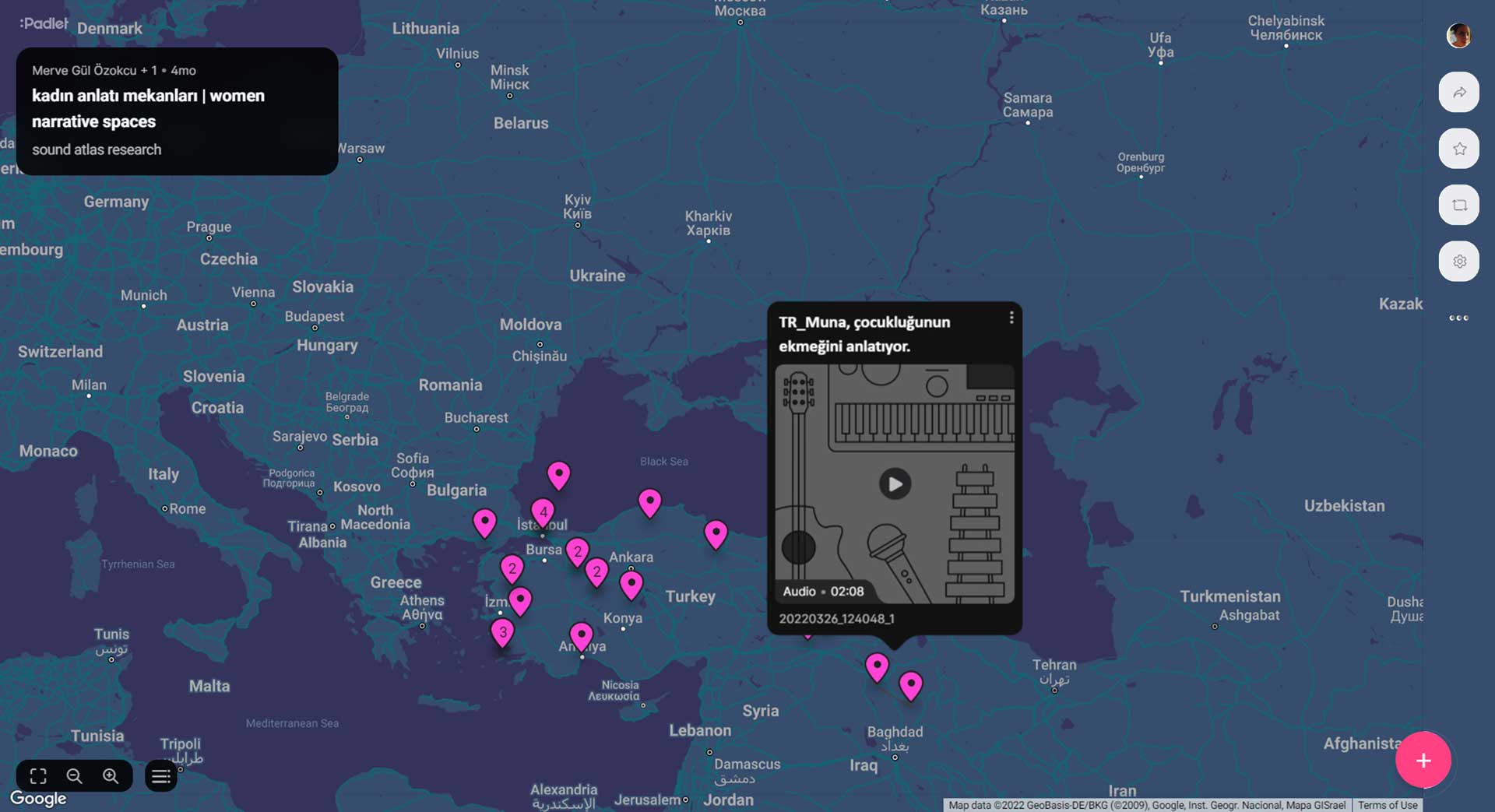
What do we share? What is common over the genders, geographies, ethnicities, and beliefs? What do we care, really? https://padlet.com/mozokcu/kadinanlatimekanlari
This is an attempt to make ongoing research open to others. Through the website, anyone can follow what the researcher is doing in the process. Anyone can add their stories to express more about their geographies. At some point, the researcher will offer a reading of the whole data. But the data here is open-source so that anyone can relate things with their point of view. If we don’t share, who are we really?
Narratives of Spaces: The gaze of the signifier, participation in an ongoing research is part of Urgent Pedagogies Issue#7: Entangled Topographies
1.
This research is based on the researcher’s PhD study at Istanbul Technical University, Architectural Design Programme. In 2022, Supported by the Designing Resilience Programme of İKSV and IASPIS, the Swedish Arts Grants Committee’s International Programme for Visual and Applied Arts..
is an architect, researcher, and activist. Her research focuses on commons, creative actions, narratives of everyday life, and indigenous eco-feminist practices. She is a member of Herkes İçin Mimarlık (Architecture for All) Association that aims to resolve social problems through architecture while searching for alternative ways of practising the discipline. She is a PhD candidate at the Architecture Design of İstanbul Technical University with the research entitled Women Narrative Spaces. Merve Gül Özokcu was a grant holder of IASPIS and İstanbul Cultural Art Foundation’s Design Resilience Program.
Women Narrative Spaces https://padlet.com/mozokcu/kadinanlatimekanlari
Herkes için Mimarlık https://herkesicinmimarlik.org
